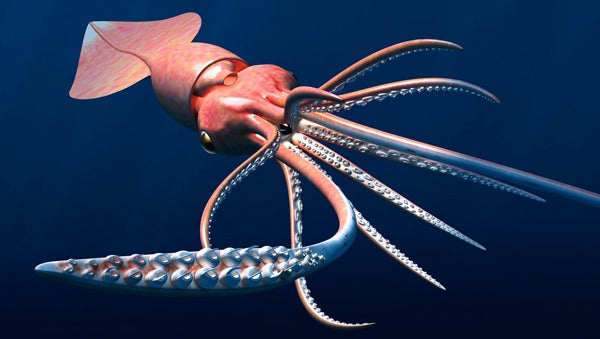Hello ladies and gents this is the Viking telling you that today we are talking about
Colossal Squid Facts
One of the best colossal squid facts is that it is the largest ever squid species in terms of mass.
The colossal equid can survive by eating just a single fish for months. It has eyes that are 10.6 in (27 cm) in diameter, meaning that even the eye of colossal squid fish is the largest eye in the animal kingdom. They die shortly after breeding and mating, but luckily, colossal squids are not extinct.
Adult colossal squids may reach a total length of 46 ft (14 m) including their tentacles. Their weight increases with size and age, with adults thought to measure about 1000-1500 lb 456-680 kg). Colossal squids prey on chaetognaths, toothfish, and other deep-sea squids.
What type of animal is a colossal squid?
The colossal squid is considered to be the largest invertebrate on the planet.
What class of animal does a colossal squid belong to?
Colossal squids belong to the class Cephalopoda.
How many colossal squids are there in the world?
Roughly 12 colossal squids were recorded up to the year 2015, but there could be many more as they are notoriously hard to trace.
Where does a colossal squid live?
Colossal squids are mostly found in deep marine environments around the waters of Antarctica.
What is a colossal squid's habitat?
Colossal squids live in the deep-sea waters of the Antarctic but they can travel as far as the southern waters of New Zealand. They have been reportedly seen in both the Atlantic and Pacific oceans, as well as around New Zealand, South Africa, and in various other open waters.
How long does a colossal squid live?
The details of colossal squids are still uncertain. However, they are considered gonochoric, meaning that they die shortly after breeding and mating.
How do they reproduce?
Adult male colossal squids most probably fertilize females through direct contact after performing a display to win her approval. All squid lay eggs. Some might lay single eggs while others lay clusters of eggs in a large jelly-like floating mass. These eggs hatch and miniature versions of the adults are born, which eventually grow to become fully-mature adults in one to three years. Specific mating behaviors are unknown among this species, but we do know that they reproduce through internal fertilization.
What is their conservation status?
At this time, the conservation status of the colossal squid is Least Concern. It is not endangered, but researchers do not have an estimate on the exact number of colossal squids that are in the world right now.
and as always have a chilled day from the Viking

Comments
Post a Comment